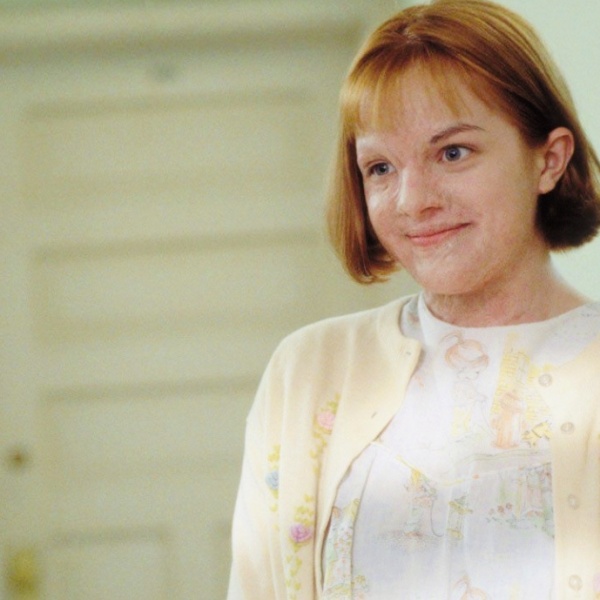
While a titled cross has been key in “X-Men: First Class” iconography (as well as a huge part of its incessant and not-entirely-original marketing campaign), suggesting that “X” indeed does mark the spot, the symbol most associated with the highly anticipated sequel/prequel/reboot/whatever-the-fuck-it-is is a question mark. Things have been leaning to and fro in the buildup to the movie’s release, with pros and cons both flying wildly. Its unequaled cast (including a mix of veterans and up-and-comers including Michael Fassbender, James McAvoy, Kevin Bacon, January Jones, Jennifer Lawrence, Nicholas Hoult and more) was balanced out by reports of an insanely hectic and rushed shooting schedule (ten months to get through production and post-production) and the unvarnished interviews with director Matthew Vaughn, who claimed to have worked with five different cinematographers and was largely unaware of who the crew was on any particular day.
So it is to some degree of relief that not only has “X-Men: First Class” turned out to be a sexy, zippy, entertaining thrill ride that kicks new life into the franchise, negating the previous two “X”-stallments – Brett Ratner‘s ghastly “X3: The Last Stand” from 2006 and Gavin Hood‘s unfathomably even-worse spin-off “X-Men Origins: Wolverine” from 2009.

Though most of the plot has been infinitely spoiled by teaser clips, photos, trailers and more, for the uninitiated, “X-Men: First Class,” dials the clock back on the “X-Men” series brought to life by filmmaker Bryan Singer (an executive-producer in this picture with a story-by credit) tracing the group of secret and heroic mutants to their origins, jumping from the horrors of WWII concentration camps to the heart of the tempestuous 1960s. The film opens similarly to Singer’s film – with a young Erik Lehnsherr (Bill Milhner; Fassbender in young adulthood) being torn away from his parents while being corralled in a Nazi prison camp during World War II. His screams of agony inflame his mutant abilities – controlling and manipulating metal objects. After briefly cutting away to child telepath Charles Xavier (Laurence Belcher as little Xavier; McAvoy as the youthful professor) meeting shape-shifting young mutant Mystique, née Raven Darkhole (Morgan Lily at first, then a more bodacious Jennifer Lawrence), we’re back with Lehnsherr in the camp, tormented by Sebastian Shaw (Kevin Bacon), leader of the villainous Hellfire Club. It’s an abrasive opening for sure, darkly tinged and ominous, and while it doesn’t exactly capture the tone of the rest of the movie, which often fluctuates to incorporate goofy, candy-colored comedy, it gives you an uneasy feeling, which is appropriate; you’ll never know what to expect when it comes to this ‘X’ outing.
When the movie resumes, post-title card, Lehnsherr (now fully inhabited by Fassbender) has become a globetrotting, metal-manipulating Nazi hunter. These early scenes have amazing verve and not just because they cannily call back to Fassbender’s performance as a globetrotting, film-criticizing Nazi hunter in Quentin Tarantino‘s “Inglourious Basterds.” There’s a particularly great scene with Lehnsherr in Argentina that has a moment that made us yelp with geeky glee. Elsewhere, a young CIA Agent named Moira MacTaggart (Rose Byrne) infiltrates a terrorist organization called the Hellfire Club (led by Bacon’s Shaw, along with January Jones as Emma Frost, a telepathic mutant with diamond skin, and Jason Flemyng as Azazel, a devil-red mutant with the ability to teleport), which leads her to eventually seek the help of Professor Charles Xavier (McAvoy, embodying the character with gusto) and Mystique. It’s in these early sequences that Vaughn sets up the movie as a kind of James Bond-with-mutants, with its 1960s setting not necessarily slavishly conscribed to; instead, its sleek, futuristic sheen is applied to the material more as a stylistic embellishment.
But that’s okay. There’s a lot more story to get to after all, mostly built around the titular “first class” – a bunch of mutants that have been rounded up by a united Lehnsherr and Xavier to fight the potential global nuclear threat that Shaw and his evil mutants pose in a covert operation under the guidance of the CIA. None of the new characters – Lucas Till as Havok, the brother to more notable mutant Cyclops who has a similar proclivity for harnessing glowy energy beams; Edi Gathegi as Darwin, an mutant with adaptive abilities that shift to suit the situation; Caleb Landry Jones as Banshee, whose supersonic screams help him fly; Zoe Kravitz as Angel, a big fly that shoots globes of snot or something – make much of an impression, but the young actors are game and work well together. The super-villainous stuff is slightly more arch but still in keeping with the movie’s 60s vibe.
Of course, the real star of “X-Men: First Class” is director Matthew Vaughn. In last year’s “Kick-Ass,” he showcased his ability to handle action film theatrics and superhero derring-do in a swiftly assured manner. That movie had more issues – it was tonally wonky (something he can’t quite shake here) and lost its focus about an hour in (when it stopped being about Kick-Ass and started being about a bunch of other weirdos) – but the fundamentals were there. We noted it at the time: one day Vaughn would take a big budget franchise, and totally kill it. And kill it he does. The action sequences here all have an amazing amount of depth and precision, never falling into the shaky cam abyss of post-‘Bourne‘ action cinema, with characters always both geographically and motivationally identifiable. And what’s more – he has fun with them, stylistically. A training montage boldly takes on the movie-screen-as-comic-book-page conceit originally tried by Ang Lee‘s underrated, art nouveau “Hulk,” with the action being split apart into small boxes. He’s also very concerned with point-of-view – a scene from Emma Frost’s viewpoint splinters the screen into a prismatic diamond; and a moment when Dr. Hank McCoy (Hoult) turns into a furry blue Beast, is entirely subjective; a werewolf transformation from the werewolf’s perspective (even though the Beast costume makes for some ludicrously imposed ADR).
That’s not to say that “X-Men: First Class” is perfect; not by a long shot. Sub-textual dimensions of the time, like, say, the Civil Rights movement or burgeoning feminism, are sidestepped in favor of red scare fear mongering and hamfisted, winky allusions to contemporary politics and issues (a bit dedicated to “Don’t ask, Don’t tell” is particularly overwrought). Overall, there are moments when only a cursory understanding of the era is given (like McAvoy’s Austin Powers-ish use of the word “groovy”) and other times when the time period seems fully invested (particularly in the palpable fear and anxiety of nuclear self-destruction that underlines the film, driven by cultures and people out of sync with one another, fueled by the distrust of the unknown). Which brings us to the dialogue: perhaps the biggest issue in the film, and could have benefited from another pass at the script which clearly, the insane production time line couldn’t allow for. Crossing over from knowingly absurd to outright campy, each actor is left to chew on expositional or thematic dialogue bereft of any shades of subtlety or depth. This is particularly an issue in the weaker first half of the film, largely with the child actors whose performances barely rise above that of a television commercial, which is another issue in itself (though compared to the wooden stiff turn by Jones, these kids are Oscar caliber). The overtures made for fanboys seem unnecessary and while they should assure fans that this is still the “X-Men” they know and love, the cameos — which we won’t spoil here — are both fun and groan worthy (you’ll know exactly which ones they are when you see it). And running a long, nearly 2 hrs and almost 20-minutes, one would still like to sit with a longer cut to give the racing-to-cram-plot-points super hero drama time to breathe. And yet, again to Vaughn’s credit, no character storyline feels shortchanged. It’s just a minor shame that some couldn’t be rewritten with a tone and fromage meter at hand.
But none of this really matters when you have performances as good as they are. It’s Fassbender who walks away with the movie (and leaves you wanting a Magneto standalone film), demonstrating why Hollywood has been chasing his tail for every major film role coming out of the studio system. His, at times, very real and chilling performance as the tortured, handsome, slickly menacing anti-hero that you can’t help but root for, elevates the material that is simultaneously beneath him and most of the elder statesmen of the cast (McAvoy’s graceful and professorial role is thankless in comparison to the juicier and conflicted Erik Lesher). He rages like a man possessed, full of unsettling and unchecked rage and grief. But his efforts would be wasted if not for Bacon’s surprisingly deft villainous turn, emanating a chilling menace that goes toe-to-toe and beat-for-beat with Fassbender. And then there’s the bristling third act and emotionally resonant, bravely bittersweet finale which nearly makes up for all the tonal issues, clunky, corny dialogue and moments of near camp that precedes it. It’s the section of the film where Vaughn truly flexes his muscles, and one wonders what heights the film could have scaled if afforded a real post-production (and hell, proper production) schedule.
For all its many little foibles, “X-Men: First Class,” is surprisingly well-handled and directed; surging forth with the drama and intensity of a global-looming threat. Crackling with high stakes intensity, yet remaining impressively light on its feet and fun, “X-Men: First Class” is the super hero movie to beat this summer. [B+]



